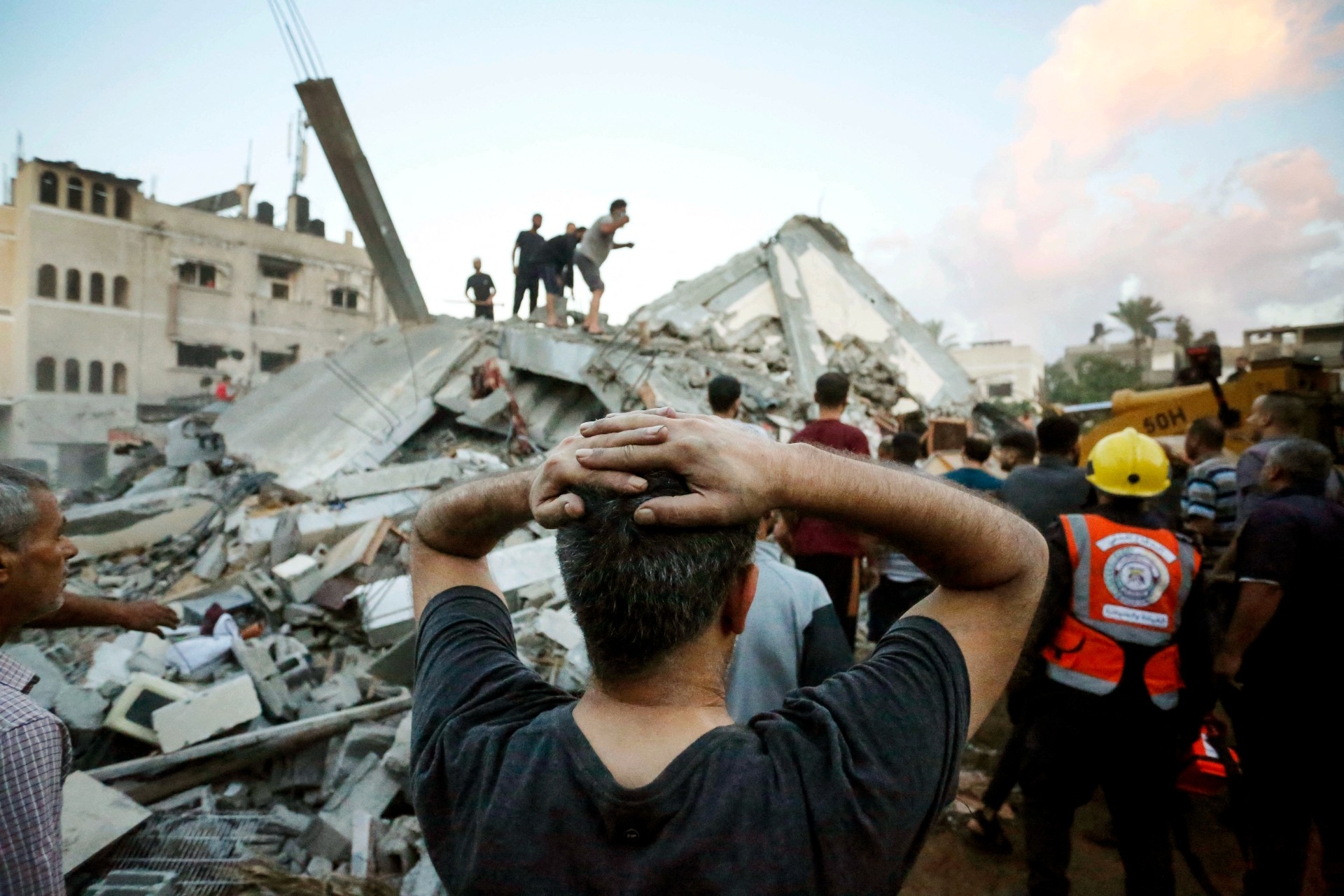Gaza doctor explains conditions in hospitals

Aseel Moussa, a freelance journalist for Middle East Eye, is currently on the ground in Gaza where she met with Dr Hossam al-Madhoun, 29, at al-Aouda hospital, in the besieged enclave.
Dr al-Madhoun, who is from Tall al-Zaatar in Gaza, says that typically, in emergency situations, he works for one week and takes one week off, but due to the current circumstances, he has been working 10 days consecutively with no days off.
Al-Mahdoun tells Moussa that the current situation inside hospitals is "indescribable", and that all doctors are finding it hard to operate on people, particularly as six hospitals across Gaza have been rendered out of service due to Israel's bombing campaign.
"There is no doubt that the conditions are very difficult right now. Hospitals have collapsed because of the lack of capacity and tools. We have been operating on generators which are not fit to work for long hours," he says.
Al-Mahdoun also says that one of the most difficult things for him is when he sees children and babies die in front of him. And while he wants to fulfil his duty as a doctor, he is also constantly worrying about his family.
'My biggest fear'
Many doctors have to operate on their own family members who have been wounded in Israeli bombings, something he says "is my biggest fear". "I don't know if I would even be able to help them," he says.
Israel's siege on Gaza has had a disastrous impact on hospitals.
"We need around 60,000 litres of water for hospitals in Gaza every 24 hours and now we have little to nothing," al-Madhoun explains. "Solar panels are not enough."
"Generators need filters, oils and someone to turn them on every hour, but we don't even have these tools," he adds.
"Some patients will die if they don't receive treatment immediately. We also have babies who need urgent care. Everyone is exhausted and the generators could turn off at any second."
The doctor has called for humanitarian groups and international organisations to intervene and help people in Gaza.
"Patients have not been able to go to the toilet or drink water. We don't have any facilities to help anyone and the environment is not clean around us, making people prone to illness and the spread of disease," he explains, warning against a potential outbreak of infection.
"We have hundreds of wounded patients who need urgent surgery following Israel's bombing, and patients are now getting worse or dying because we can't help them. They are crowded in rooms and in the corridors and hallways of the hospital."

